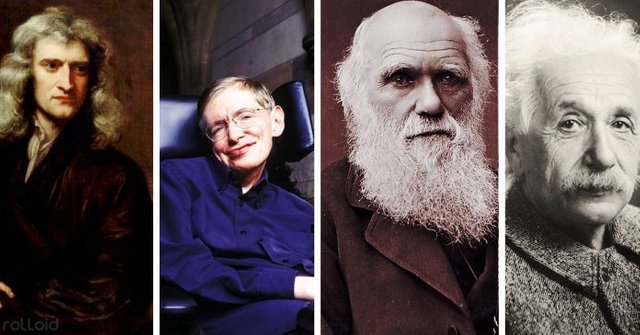What did the scientists think of the existence of God? Part I

Commonly, science and religion are understood as found disciplines. In recent years, the idea that scientific research is essentially incompatible with religious belief has gained ground. However, this was not always like that. Some of the most important scientists in history, who have relied on data and observations to make sense of the world, were believers.
These are some of the services that created the existence of God.

"To know the wonderful works of God, to understand his wisdom and majesty, and to appreciate, to some degree, the wonders of the work of his laws. All this must be a pleasant and acceptable way of worshiping the Most High, whose ignorance can not be more gratifying than knowledge. "

"I do not feel compelled to believe that the same God who has endowed us with meaning, heart and intellect, makes us renounce its use."
The astronomer and scientist Galileo Galilei was condemned for heresy by the Roman Catholic Church for supporting the theory that planets revolved around the sun. In private letters he confirmed that his beliefs had not changed.
He was criticized by the philosophers of his time for valuing the authority of the Bible over scientific evidence.

"Blind metaphysical need, which is the same always and everywhere, could not produce a lot of things. All that diversity of natural elements that we find appropriate for different times and places could not be born of anything, except the ideas and will of a being, necessarily existing. "
Newton was deeply religious all his life. He spent more time studying the Bible than studying science.

"The impossibility of conceiving that this wonderful and great universe, with our conscious self, arose by chance, seems to me to be the main argument in favor of the existence of God; but if this is an argument of real value, I have never been able to decide. "
Charles Darwin was best known for his theory of evolution. On the question of God, he admitted that his feelings often fluctuated. He found it hard to believe that an omnipotent God had created a world full of so much suffering; but at the same time, he was not satisfied with the conclusion that this "wonderful universe" was the result of "brute force". We could say that he was an agnostic.

"Nothing in life is to be feared, it is only to be understood. Now is the time to understand more, so we can fear less. "
Marie Curie, physicist, was educated in the Catholic faith, but according to several reports, she became agnostic in her adolescence. Never followed any specific religion.
What did the scientists think of the existence of God? Part II
What do you think about the relationship between science and religion? Tell us in the comments!

Hello tcandx, welcome to Partiko, an amazing community for crypto lovers! Here, you will find cool people to connect with, and interesting articles to read!
You can also earn Partiko Points by engaging with people and bringing new people in. And you can convert them into crypto! How cool is that!
Hopefully you will have a lot of fun using Partiko! And never hesitate to reach out to me when you have questions!
Cheers,
crypto.talk
Creator of Partiko